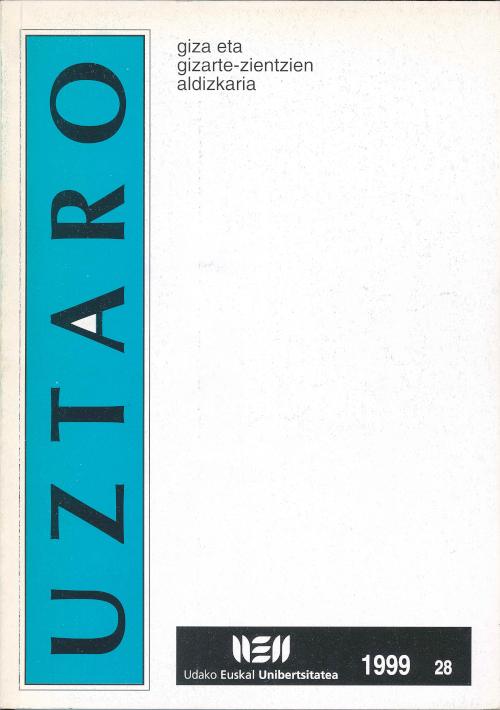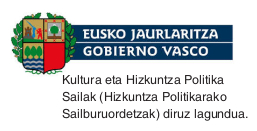Genero-identitatea testuinguruan: ikerketa enpirikoa
Abstract
Traditionally, research on gender identity has been involved in general differences derived from the subject classification related to the femenine-expressive and/or masculineinstrumental attributes. However, the study of the variability of these attributes across situations has not been largely analised. The aim of the present study was to evaluate the relationship between gender identity and context. A 2 (context: work-couple) x 2 (gender: femalemale) x 2 (condition: real-ideal) mixed factorial design was applied, treating condition as a repeated measure variable. Subjects of this investigation described people’s behaviour in each of the contexts and conditions, in the base of characteristics from the Bem Sex Role Inventory. In the factorial analyses, we have found instrumentality and expressivenes dimensions clearly differenced. On the other hand, it was found an interaction effect between gender, context, and condition variables. While men showed high instrumental scores in the work condition and low scores in the couple condition in the real condition, the opposite case was observed in the women group. In the ideal condition, women changed this tendency, appearing a similar pattern between the sexes. Finally, theoretical and practical reflections in relation to these results are proposed.Downloads
Download data is not yet available.
License
Copyright (c) 1999 Uztaro

This work is licensed under a Creative Commons Attribution-NonCommercial-ShareAlike 4.0 International License.
Downloads
Published
1999-04-23
How to Cite
Ortiz Anzola, G., & Valencia Garate, J. (1999). Genero-identitatea testuinguruan: ikerketa enpirikoa. Uztaro. Giza Eta Gizarte-Zientzien Aldizkaria, (28), 99–111. Retrieved from https://aldizkariak.ueu.eus/index.php/uztaro/article/view/4011
















